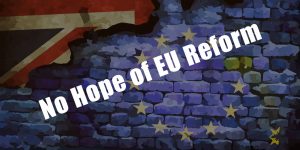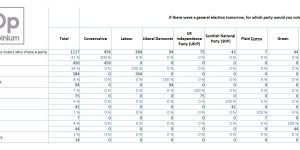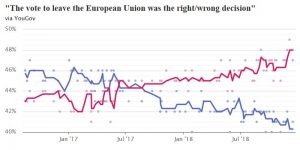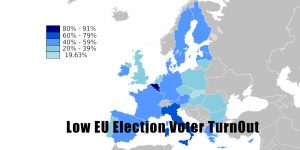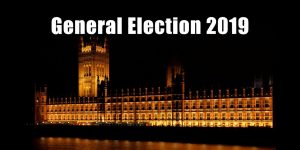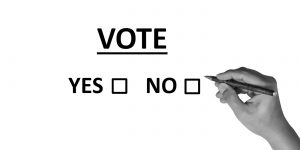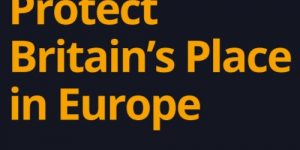The United Kingdom’s Exit from and new Partnership with the European Union White Paper
8.10 The UK Economy
8.10 We continue to supplement our analysis of trade data with a wide range of other analysis and engagement. We have structured our approach by five broad sectors covering the breadth of the UK economy: goods; agriculture, food and fisheries; services; financial services; and energy, transport and communications networks, as well as areas of crosscutting regulation. Within this, our stakeholder engagement and analysis covers over 50 specific sectors.
Goods
8.11 Free movement of goods within the EU is secured through a number of mechanisms, including through the principle of mutual recognition (which means that goods lawfully marketed in one Member State can be sold in all Member States), the harmonisation of product rules (where the same rules apply for a range of goods, such as for fertilisers, in all Member States) and agreement that manufacturers can use voluntary standards as a way of demonstrating compliance with certain essential characteristics set out in EU law (such as for toy safety). In a number of sectors covering typically higher risk goods (such as chemicals or medicines), the EU has also agreed more in-depth harmonised regulatory regimes, including for testing or licensing.
Standards
Standards are voluntary technical agreements about the best way to do something, such as how to manufacture a certain product. They are developed by industry and other stakeholders through processes that seek consensus. The majority of standards have been developed for purely commercial reasons to support the interoperability of firms and international trade.
Over time, standards have been increasingly developed at a global level, through the International Organization for Standardization (ISO) and International Electrotechnical Commission (IEC). These international standards are then adopted at regional, including European, and national levels. The British Standards Institution (BSI) will retain its membership of these organisations after exit and we expect the UK to continue to play a leading role in driving the development of global standards.
The European Standards Organisations are not EU bodies, though they have a special status in the EU. Approximately 25 per cent of published European standards have, in part, and whilst still voluntary, been developed by the European Standards Organisations as a result of requests from the European Commission.[48] This subset of standards provides businesses with a way of demonstrating compliance with EU product laws, such as with respect to gas appliance rules.
We are working with BSI to ensure that our future relationship with the European Standards Organisations continues to support a productive, open and competitive business environment in the UK.
8.12 In many cases EU rules are based on global requirements. For example, the UN Economic Commission for Europe sets global vehicle safety standards. As part of our vision for an outward-facing global UK we will continue to play a leading role in such international fora.
8.13 Our new partnership should allow for tariff-free trade in goods that is as frictionless as possible between the UK and the EU Member States.
Agriculture, food and fisheries
8.14 The UK’s agriculture, food and fisheries sectors are currently heavily influenced by EU laws, through frameworks such as the Common Agricultural Policy (CAP) and the Common Fisheries Policy, and through other rules meeting multiple objectives, such as high levels of environmental protection or animal welfare.
8.15 With respect to agriculture and food, the UK is a net importer of agri-food goods. Whilst UK exports of agriculture, fisheries and food products to the EU were £11 billion in 2015, imports were £28 billion and over 70 per cent of our annual agri-food imports come from the EU.[49] This underlines the UK and EU’s mutual interest in ensuring continued high levels of market access in future. In addition, and with EU spend on CAP at around €58 billion in 2014 (nearly 40 per cent of the EU’s budget),[50] leaving the EU offers the UK a significant opportunity to design new, better and more efficient policies for delivering sustainable and productive farming, land management and rural communities. This will enable us to deliver our vision for a world-leading food and farming industry and a cleaner, healthier environment, benefiting people and the economy.
8.16 In 2015, EU vessels caught 683,000 tonnes (£484 million revenue) in UK waters and UK vessels caught 111,000 tonnes (£114 million revenue) in Member States’ waters.[51] Given the heavy reliance on UK waters of the EU fishing industry and the importance of EU waters to the UK, it is in both our interests to reach a mutually beneficial deal that works for the UK and the EU’s fishing communities. Following EU exit, we will want to ensure a sustainable and profitable seafood sector and deliver a cleaner, healthier and more productive marine environment.
Services (excluding Financial Services)
8.17 The services sector is large and diverse, including areas such as retail, accountancy, consulting, legal services, business services, creative industries – like film, TV, design, music and fashion – medical services, tourism and catering.[52]
Integration of services sectors with the rest of the economy Services sectors are a large and export-rich part of the UK economy and an important and growing integrated component of value chains. For example, services inputs represented 37 per cent of the total value of UK exports of manufactured goods in 2011.[52] Firms increasingly use logistics, communications services and business services to facilitate the effective functioning of their supply chains. In particular, the professional and business services sector provides valuable consultancy and administrative services to a range of sectors including financial services.
8.18 The Single Market for services is not complete. It seeks to remove barriers to businesses wanting to provide services across borders, or to establish a company in another EU Member State, through a range of horizontal and sector-specific legislation. This includes the mutual recognition of professional qualifications. The EU’s Digital Single Market measures are designed to ensure the regulatory environment keeps pace with the evolving digital economy.
8.19 We recognise that an effective system of civil judicial cooperation will provide certainty and protection for citizens and businesses of a stronger global UK.
8.20 The EU is a party to negotiations on the Trade in Services Agreement (TiSA) with more than twenty other countries. The UK continues to be committed to an ambitious TiSA and will play a positive role throughout the negotiations.
8.21 In our new strategic partnership we will be aiming for the freest possible trade in services between the UK and EU Member States.
Financial Services
8.22 The financial services sector is an important part of our economy. It is not just a London-based sector; for example, two thirds of financial and related professional services[53] jobs are based outside the capital, including 156,700 in Scotland, 54,300 in Wales and 32,000 in Northern Ireland.[54] The UK is a global leader in a range of activities, including complex insurance, wholesale markets and investment banking, the provision of market infrastructure, asset management and FinTech.
8.23 There are a range of provisions across many different pieces of EU financial regulation, which allow firms in Member States to provide financial services across the EU under a common set of rules and a single authorisation from their regulator – these are often referred to as financial services passports. Both UK and EU firms benefit from these arrangements – there are over 5,000 UK firms that utilise passports to provide services across the rest of the EU, but around 8,000 European firms that use passports to provide services into the UK.[55]
8.24 Additionally, there are provisions that allow firms from ‘third countries’ to provide services across the EU, provided that their relevant domestic regulations have been deemed equivalent to those of the EU.
8.25 In our new strategic partnership agreement we will be aiming for the freest possible trade in financial services between the UK and EU Member States.
8.26 In highly integrated sectors such as financial services there will be a legitimate interest in mutual cooperation arrangements that recognise the interconnectedness of markets, as so clearly demonstrated by the financial crisis. Since that time, the EU has taken a number of steps to strengthen collective oversight of the sector. As the UK leaves the EU, we will seek to establish strong cooperative oversight arrangements with the EU and will continue to support and implement international standards to continue to safely serve the UK, European and global economy.
A European global financial centre
The financial services sector is an important part of the European economy, contributing significantly to the funding and growth of European business. It is in the interests of the UK and the EU that this should continue in order to avoid market fragmentation and the possible disruption or withdrawal of services.
The UK’s financial services sector is a hub for money, trading and investment from all over the world and is one of only two global, full service financial centres – and the only one in Europe. In 2016 the Global Financial Centres Index once again ranked London as the number one financial centre.[56]
Citizens, businesses and public sector bodies across the continent rely on the City to access the services that they need. Over 75 per cent of the EU27’s capital market business is conducted through the UK.[57] The UK industry manages £1.2 trillion of pension and other assets on behalf of European clients.[58] The UK is also responsible for 37 per cent of all European Initial Public Offerings, while the UK receives more than onethird of all venture capital invested in the EU.[59]
EU27 firms also have an interest in continuing to serve UK customers.
The fundamental strengths that underpin the UK financial services sector, such as our legal system, language and our world-class infrastructure will help to ensure that the UK remains a pre-eminent global financial centre.
Energy, transport and communications networks
8.27 There are three UK-wide network industries and associated services which interact extensively with the EU: transport, energy and communications. All three are important in their own right and are key ‘enablers’ to the functioning and success of the economy as a whole.
8.28 With respect to energy, EU legislation underpins the coordinated trading of gas and electricity through existing interconnectors with Member States, including Ireland, France, Belgium and the Netherlands. There are also plans for further electricity interconnections between the UK and EU Member States and EEA Members. These coordinated energy trading arrangements help to ensure lower prices and improved security of supply for both the UK and EU Member States by improving the efficiency and reliability of interconnector flows, reducing the need for domestic back-up power and helping balance power flows as we increase the level of intermittent renewable electricity generation. We are considering all options for the UK’s future relationship with the EU on energy, in particular, to avoid disruption to the all-Ireland single electricity market operating across the island of Ireland, on which both Northern Ireland and Ireland rely for affordable, sustainable and secure electricity supplies.
8.29 The Euratom Treaty provides the legal framework for civil nuclear power generation and radioactive waste management for members of the Euratom Community, all of whom are EU Member States. This includes arrangements for nuclear safeguards, safety and the movement and trade of nuclear materials both between Euratom Members such as France and the UK, as well as between Euratom Members and third countries such as the US.
8.30 When we invoke Article 50, we will be leaving Euratom as well as the EU. Although Euratom was established in a treaty separate to EU agreements and treaties, it uses the same institutions as the EU including the Commission, Council of Ministers and the Court of Justice.[60] The European Union (Amendment) Act 2008 makes clear that, in UK law, references to the EU include Euratom. The Euratom Treaty imports Article 50 into its provisions.
8.31 As the Prime Minister has said, we want to collaborate with our EU partners on matters relating to science and research, and nuclear energy is a key part of this. So our precise relationship with Euratom, and the means by which we cooperate on nuclear matters, will be a matter for the negotiations – but it is an important priority for us – the nuclear industry remains of key strategic importance to the UK and leaving Euratom does not affect our clear aim of seeking to maintain close and effective arrangements for civil nuclear cooperation, safeguards, safety and trade with Europe and our international partners. Furthermore, the UK is a world leader in nuclear research and development and there is no intention to reduce our ambition in this important area. The UK fully recognises the importance of international collaboration in nuclear research and development and we will ensure this continues by seeking alternative arrangements.
8.32 In the transport sector, there is a substantial body of EU law covering four transport modes (aviation, roads, rail and maritime), which governs our current relationship with the EU, and which will need to be taken into consideration as we negotiate our future relationship.
For example, in aviation, the standard international arrangement is that air services operate under rights granted through bilateral air services agreements between nation states. In the late 1980s and early 1990s the EU created an internal aviation market whereby any carrier licensed in the EU is entitled to operate any service in the EU, superseding the old bilateral arrangements. As we exit the EU, there will be a clear interest for all sides to seek arrangements that continue to support affordable and accessible air transport for all European citizens, as well as maintaining and developing connectivity. We will also seek to agree bilateral air services agreements with countries like the US, where our air services arrangements are currently covered by an agreement between the EU and the US.
8.33 Similar issues are raised with respect to Road Haulage, where it is the EU’s regulatory framework that guarantees rights for HGV operators to carry goods to, from, through and within other EU countries. Around 99 per cent of total international road freight for the UK is to and from the other EU27 nations. Approximately 80 per cent of this cross-border haulage is handled by foreign hauliers.[61], [62]
8.34 With respect to communications networks, telecoms operators are regulated in the UK by the EU’s ‘Electronic Communications Framework’, which promotes competition and choice. As we exit the EU, we will want to ensure that UK telecoms companies can continue to trade as freely and competitively as possible with the EU and let European companies do the same in the UK.
8.35 Content that is carried over electronic communication networks is regulated in the EU by the Audiovisual Media Services Directive. This underpins the operation of the internal market for broadcasting by ensuring the freedom to provide broadcasting services throughout the EU. The UK is currently the EU’s biggest broadcasting hub, hosting a large number of international broadcasting companies. In the course of the negotiations, we will focus on ensuring the ability to trade as freely as possible with the EU and supporting the continued growth of the UK’s broadcasting sector.
Cross-cutting regulations
8.36 A range of cross-cutting regulations underpin the provision and high standards of goods and services, maintaining a positive environment for businesses, investors and consumers. For example, a common competition and consumer protection framework deals with mergers, monopolies and anti-competitive activity and unfair trading within the EU on a consistent basis, and EU-wide systems facilitate the protection of intellectual property.
8.37 As we leave the EU, the Government is committed to making the UK the best place in the world to do business. This will mean fostering a high quality, stable and predictable regulatory environment, whilst also actively taking opportunities to reduce the cost of unnecessary regulation and to support innovative business models.
8.38 The stability of data transfer is important for many sectors – from financial services, to tech, to energy companies. EU rules support data flows amongst Member States. For example, the EU data protection framework outlines the rights of EU citizens, as well as the obligations to which companies must adhere when processing and transferring this data.
There is also an ongoing consultation regarding the free flow of data, including considering whether legislation is necessary to limit Member States’ requirements for data to be stored nationally.
8.39 The European Commission is able to recognise data protection standards in third countries as being essentially equivalent to those in the EU, meaning that EU companies are able to transfer data to those countries freely.
8.40 As we leave the EU, we will seek to maintain the stability of data transfer between EU Member States and the UK.
8.41 The Government is committed to ensuring we become the first generation to leave the environment in a better state than we found it. We will use the Great Repeal Bill to bring the current framework of environmental regulation into UK and devolved law. The UK’s climate action will continue to be underpinned by our climate targets as set out in the Climate Change Act 2008 and through our system of five-yearly carbon budgets, which in turn support our international work to drive climate ambition. We want to take this opportunity to develop over time a comprehensive approach to improving our environment in a way that is fit for our specific needs.
[48] ‘European Standards and the UK’, British Standards Institution, 2016.
[49] ‘Trade Statistics’, HMRC, 2016.
[50] ‘Agriculture: A partnership between Europe and farmers’, European Commission, November 2014.
[51] ‘Provisional Statistics – UK Fleet Landings from other EU Member States waters: 2015’, Marine Management Organisation, February 2017. These figures do not include fish caught by third country vessels, for example Norway, in UK waters, or fish caught by UK fisherman in third country waters.
[52] ‘Trade in Value Added – October 2015’, OECD, October 2015.
[53] Includes legal, accountancy and consulting professions.
[54] ‘Key facts about UK financial and related professional services’, TheCityUK, March 2016.
[55] ‘Letter from Financial Conduct Authority to Treasury Committee Chair regarding passports’, UK Parliament, August 2016.
[56] ‘Global Financial Centres Index’, Z/Yen Group, September 2016.
[57] ‘EU Scenarios and the UK Financial Centre’, Oliver Wyman and the City UK, April 2014.
[58] ‘Asset Management in the UK 2015-16: The Investment Association Annual Survey’, The Investment Association, September 2016.
[59] ‘The Potential Impact of Brexit on European Capital Markets: A Qualitative Survey of Market Participants’, New Financial, April 2016.
[60] Section 3(2) of the European Union (Amendment) Act 2008.
[61] ‘International road freight transport statistics (Table go_ia_rc)’, Eurostat, September 2016.
[62] ‘International Road Freight Activity’ Tables RSF0201, RSF0208, RFS0209, DfT, January 2017.
Previous : Ensuring Free Trade with European Markets
Next : European Union Agencies
The United Kingdom’s Exit from and new Partnership with the European Union White Paper

